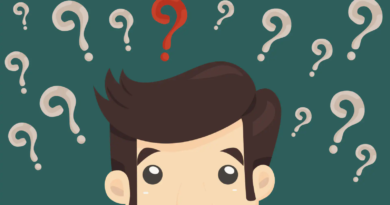10 Stages of learning in our life
In our lifetime we learn different things. We progress from one stage of learning to another. We can consider them as hurdles in life that we must overcome to enter into the next stage. Even when we enter the next stage, we always have scope to improve previous learnings. Here I’ve tried to simplify the way we grow and as per observations it is consistent with our experiences.
While reading the article you may feel that you are spread across multiple stages of learning. In this vast and complicated world, no one really becomes perfect, we continue to excel in previous stages as we enter a new stage. There is always scope of improvement in earlier stages. Below are the stages in the order we face and overcome in our life.
Stage 1 – Learn to Survive

Right after we take birth our body starts adapting to the environment. Our body has given us the ability to feel hunger, pain, fear, and happiness since infancy. We may not be able to recall how we learnt to breathe, eat or sleep but we learnt all these things when we were mere infants. As infants we used to cry to attract the attention of our parents to help us to survive. Survival in its basic form is the first stage of learning that we master before we go for any other stage.
Stage 2 – Learn to Speak

Crying all the time might have been the best way to survive as an infant but it is definitely not for becoming a functional human being. At this point we enter our next stage of learning. We start speaking in bits and pieces when we are about 1 year old. Speaking opens the door for us to learn everything else in future. It enables us to express ourselves without much physical movement. Now we do not have to expend energy on crying every time we need something. We become way more efficient to put forward our thoughts, ideas, concerns and questions.
Stage 3 – Learn to Socialize

After learning to speak, we enter our next stage of learning which is to socialize. By the time we are 3-4 year old, typically referred to as pre-school years, we learn different ways to interact with people. Using our ability to speak, we learn to connect with people outside the family, we learn to make friends. Socializing increases our rate of learning. Earlier we could learn new skills from our personal experience only but as we socialize we also add others experiences. We also improve our emotional well-being when we socialize.
Stage 4 – Learn Own Morals

As we socialize, we expose ourselves to a range of thoughts. We develop our mental framework of right and wrong. At this stage most of us were in elementary school where we read about life-lesson through tens and hundreds of fictional stories. All these stories, gossips, exposures form the base of our moral values. Morals act as a compass of right versus wrong that lasts for lifetime.
Stage 5 – Learn to Gather Information

As we enter this stage, we start to gather information. This can be either through education, self-interest or any external factor. During this stage, we usually fill up our brain with everything already known about the world. This roughly overlaps with our middle school phase. We spend time knowing about the world through books, movies, videos etc. This stage is crucial as we expose ourselves to vast amounts of the widely accepted human knowledge without actually indulging in any risk. This can be grossly considered as the common knowledge of a generation.
Stage 6 – Learn Existing Applications

Once we have common knowledge of the world, we delve further into the application aspect of existing human knowledge. This is the stage when we learn about how the existing world uses various discoveries and inventions done by the human race in day-to-day life. We are usually in secondary school during this phase. We start seeing the world through different lenses. At this stage, we may start to feel a pull towards a particular field. Some may find science while others may find arts or math or any other field as a fascinating subject. This is the stage when passion creeps into us and keeps us motivated for the rest of our life.
Stage 7 – Learn to Specialize

Even though we may have learnt application of various fields, we choose to follow the one that inspires us. This is a transition phase in which we move from being consumers to creators of learning. We follow a commonly known path to move forward to become an expert. Consider this stage as equivalent to doing bachelors/masters at university. During this stage we do our experiments, make mistakes, learn from mistakes. The purpose of this stage is to train ourselves to become good enough to understand the intricacies of our field of choice. Once we have learned this we proceed to the next stage.
Stage 8. Learn Self-Learning

At this stage, instead of following a common path, we build our own path. This is where all the complications which we were unaware of start adding up. We make mistakes to learn things that may not be common knowledge yet. Self learning makes us unique. Instead of becoming a cookie-cut robot in society, we become a unique mix of knowledge and passion.
This stage pushes us to excel in areas of interest. We start assimilating information we gather from various sources to build frameworks to propel our understanding of the subject further, much beyond written or recorded form of knowledge. This is similar to learning best practices, productive habits that increase our self-worth. At this stage, we also start to see the problems around us and in the world, especially in the areas that interest us.
Stage 9 – Learn Problem Solving

As we face problems, we feel challenged and we push ourselves into the problem solving stage. Based on our self-learning ability, we build a solution and implement it. We become capable of understanding and breaking problems into solvable pieces. In a similar fashion, we learn to differentiate symptoms and issues. We learn ways to pin-point issues that would lead us to identify the root-cause. We eventually learn to solve the root cause of issue(s). Majority of us spend most of our intellectual capacity at this stage.
Depending on the exposure level and rate of problem solving we may spend our whole time here. This phase is both – challenging and rewarding. Problem solving gives us the satisfaction of living a purposeful life. Many of us define ourselves by the problem we solve. However, there is something more to life than problem solving.
Stage 10 – Learn to Transcend

When we have faced and solved enough problems in our life then we gain the ability to see beyond just solving problems and issues. We learn to envision the future in a very different form. We become capable of picturing the future of things around us based on our learnings. At this very stage we can choose to become leaders in our fields. Some fields that are easy to observe in life are politics, religion, business, education, finance. There are many more that we do not see, for example medicine, defence, energy etc.
Fields which are non-existent today will have huge relevance in the future. Only an experienced, knowledgeable person who is visionary enough to picture such a future will become a pioneer in the respective field to become its first leader. The leaders understand their respective fields far beyond the common man’s understanding. That’s why they are also the key people to push the boundaries of those fields to further advance human civilization.
Conclusion
I hope my version of stages of learning was insightful. Hope this helped you to understand your learning path in a much broader sense. Feel free to write your thoughts in the comment section below. Thanks.




